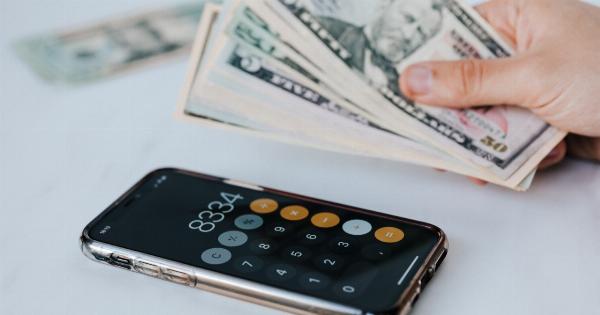Mobile phones have become an integral part of our daily lives. From staying connected with loved ones to accessing information on the go, these devices have revolutionized the way we communicate and interact with the world.
However, with the increasing reliance on mobile phones, many individuals are grappling with the issue of mobile phone addiction. This article aims to explore the concept of mobile phone addiction, its potential risks, and measures to manage and overcome this addiction.
What is Mobile Phone Addiction?
Mobile phone addiction, also known as nomophobia (short for ‘no mobile phone phobia’), refers to excessive and compulsive use of mobile phones that interferes with an individual’s daily life and well-being.
Like any other addiction, mobile phone addiction involves a loss of control over phone usage, leading to negative consequences and an inability to cut back or stop using phones despite the knowledge of its adverse effects.
Signs and Symptoms of Mobile Phone Addiction
Identifying whether you or someone you know is addicted to their mobile phone is crucial to take appropriate measures. Here are some common signs and symptoms:.
1. Constant Phone Preoccupation
Do you constantly think about your phone, crave using it, or feel anxious when you cannot access it? These are signs of mobile phone addiction.
2. Excessive Phone Use
Spending an excessive amount of time on your phone is another sign of addiction. This includes using your phone during inappropriate times like while driving, during meals, or in important social settings.
3. Neglected Responsibilities
When mobile phone usage begins to interfere with your responsibilities, such as neglecting work or studies, ignoring household chores, or compromising personal relationships, it signifies addiction.
4. Withdrawal Symptoms
Do you feel restless, irritable, or distressed when you are unable to use your phone? Experiencing withdrawal symptoms when not using your phone is an indication of addiction.
5. Failed Attempts to Cut Back
If you have tried repeatedly to reduce your phone usage but failed to do so, it could indicate the presence of an addiction.
Risks and Consequences of Mobile Phone Addiction
Mobile phone addiction can have several detrimental effects on various aspects of an individual’s life:.
1. Physical Health Implications
Excessive screen time and poor posture while using mobile phones can lead to various physical health problems such as eye strain, neck and back pain, headaches, and sleep disturbances.
2. Mental Health Issues
Studies have linked mobile phone addiction to increased risks of anxiety, depression, stress, and reduced overall psychological well-being.
The constant need for validation through social media and continuous exposure to online bullying can significantly impact mental health.
3. Impaired Interpersonal Relationships
Excessive phone use can strain relationships with family, friends, and colleagues. Constant distraction by mobile phones can lead to decreased face-to-face communication and emotional disconnection from loved ones.
4. Reduced Productivity
Excessive phone use can hamper productivity, whether it’s in academic or professional settings. Constant interruptions and distractions from notifications and social media can impede concentration and efficiency.
5. Financial Burden
Mobile phone addiction can lead to unnecessary spending on apps, games, and online purchases. The financial burden of constantly upgrading to the latest devices and data plans can be significant.
Managing and Overcoming Mobile Phone Addiction
Recognizing the presence of mobile phone addiction and taking proactive steps to manage and overcome it is crucial. Here are some strategies:.
1. Set Boundaries
Establish clear boundaries for phone use, especially during specific times like meals, family time, or before bedtime. Use features like app timers and Do Not Disturb mode to limit your access during those periods.
2. Practice Mindfulness
Be more mindful of your phone usage and the impact it has on your well-being. Take regular breaks from screens, engage in activities that do not require phone usage, and develop hobbies that divert your attention from your device.
3. Prioritize Face-to-Face Communication
Make a conscious effort to connect with friends and family members through face-to-face interactions rather than relying solely on virtual communication.
Engaging in meaningful conversations and activities can reduce the temptation to excessively use mobile phones.
4. Seek Support
If you’re struggling to control your mobile phone usage, consider seeking support from friends, family, or professional counselors.
There are various support groups, therapies, and online resources available that can assist in managing mobile phone addiction.
5. Create Phone-Free Zones
Designate specific areas, such as bedrooms or dining rooms, as phone-free zones. Encourage everyone in your household to adhere to these boundaries, promoting healthier habits and reducing the reliance on mobile phones.
Final Thoughts
While mobile phones offer undeniable benefits, it is essential to be mindful of our usage and prevent it from turning into an addiction.
By recognizing the signs, understanding the risks, and implementing strategies to manage mobile phone addiction, we can maintain a healthy balance between the virtual and real world. Remember, your smartphone should serve as a tool to enhance your life, not a hindrance to it.






























